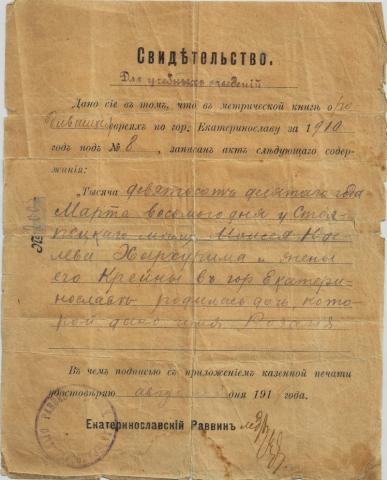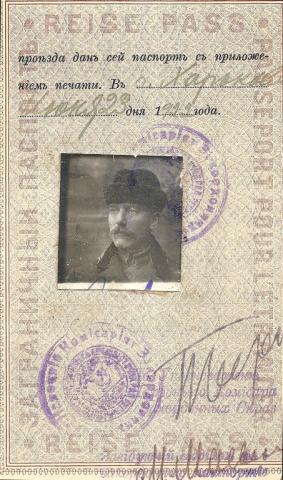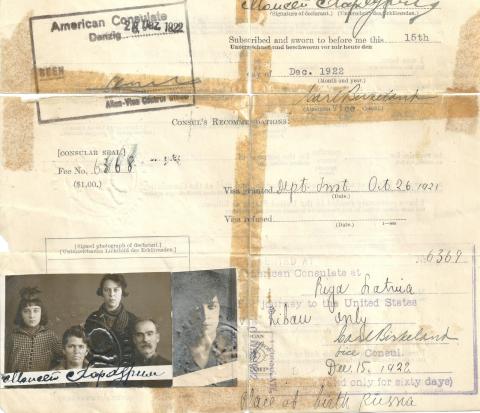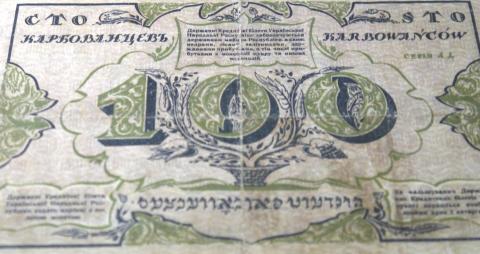Roots in the Ukraine
With excitement and a little worry that I wouldn't like the city of my ancestors, we arrived in Dnepropetrovsk. I knew it wouldn't look like my grandmother's stories, and of course it is a "modern" city in the contemporary Ukrainian sense, but I loved it anyway. We were here to visit and maybe dig a bit into my roots.



I grew up on Long Island only a few miles away from my Russian Grandmother, Razunia. She was at all our birthdays, babysat us, made us Borscht, Peroshki, Chicken Soup, Cakes & Ruggelah, brought over amazing tomatoes she grew in her suburban garden, ran a little gift shop if unusual imported crafts that we sometimes visited, and as we got older, we learned she followed conservative politics closely and was vehemently against the (then) USSR.
We grew up hearing stories of her life in her home country. For example, how she saw Czar Nicolai, who came through her village in the dead of winter one year: she said her mother wrapped Razunia's feet in newspaper inside her boots, as she had to wait hours in the cold for the Tsar's carriage to arrive. And when it did, she said she was amazed to see that all the 'peasants' bowed down to him.
She was there during the revolution, and experienced the city, then called Yakaterinaslav, alternately in the power of the Reds and the Whites. What this meant to a young teenage girl was that occasionally her mother had her hurry up and hide valuables or their fur coats under the bed when soldiers (from whichever side) came to the apartment to loot. My great grandmother greeted each lot of soldiers at the door as a mother. "You look hungry, come in, eat!" She knew they would take it anyway, but this way I think she saved them from much worse treatment.
Mosei (my grandfather) seemed to be safe as editor of an important local newspaper, Pridneprovski Krai. He was even potentially the future owner of the paper because the real owner had fled and given it to him "if he did not return". Presumably, regardless of whatever army was in charge, they wanted an editor around so that their view of history could be written in the paper.
This changed when he was taken out to be shot, and only saved at the last minute. Razunia's older brother was already in the USA and they were able to get visas and escape.

We stayed in a very upscale hostel inside the Menorah Centre, a building shaped as it is named, only build about a year ago by a local Jewish businessman, as a Jewish centre for the city. The building houses a synogogue, Jewish history and Holocaust museum, offices from Jewish, Israeli and other organisations and businesses, upscale shops, a hotel with Kosher bar and a hostel.
After we arrived and while everyone settled in to the very quiet hostel, I went off with scans of some of my grandmother's documents that my mother and sister had emailed me, to see if someone could help me learn a bit more information. I ended up first talking to a Jewish agency in one of the towers, whose purpose was to encourage Ukrainian Jews to emigrate to Israel. As Israel is so important to Jewish history and identity, this type of aliyah ("moving up") agency is very common in western countries, though I have to admit to being struck by the contradiction that it was housed in a Centre which is trying to build back up the formerly 35% Jewish population of the city.
They directed me to the museum, where Sasha, a young woman at the desk, was very willing to try to help, once she understood what I was asking. As we went through the documents, she got particularly interested when she saw the handwritten note from information Razunia gave my mother while in hostital. We were both struck by both the poignancy of this last minute information, and she seemed to be impressed because the note revealed that my grandfather was editor of a significant paper of the time: "he was an important man".
As she helped me translate the other documents, she asked if she could get more information and use them in an exhibit.
She had to go after this, but the next day I got a tour of the museum from a very enthusiastic young man. Their exhibit seems to try to show the history of local Jews as well as be a kind of interpretive centre for Judaism to a population which is mostly non-jews. I got a private tour in pretty good English, peppered with great little stories and anecdotes. No idea if these are true!
- Traditionally and today, Torah scribes write left to right, even though Hebrew goes right to left. Probably because most of them were right handed and would smudge the ink if the wrote in the correct direction
- Originally Jewish soldiers used a triangular shield, which left parts of their body unprotected. King David's innovation was to add a second inverted triangle, giving the 6 pointed star which is called the Star of David in English, and the Shield of David in Hebrew.
- In Russian, the 12 Tribes of Israel are literally the 12 Knees
I learned that during its brief period of independence in the early 19th century, the Ukraine had a Jewish ministry, its own currency which included Yiddish because Jews were a significant minority.
Whenever he showed me a menorah, or prayerbook, or sabbath table setting from the time, I kept thinking about Razunia as a little girl in this city, and how she or her neighbours or community would have been using these very objects.
After my tour, I went back to Sasha who gave me details on how to get at the newspaper archives on the internet, and agreed to continue communicating about how to use Razunia's documents in a future display.
I had really only learned a little bit more about my family but it felt like the beginning of a process. I was pleased to be able to place Razunia in her community's context, to be where she grew up before she left, and to be there as a proxy for my mother, Razunia's daughter.


